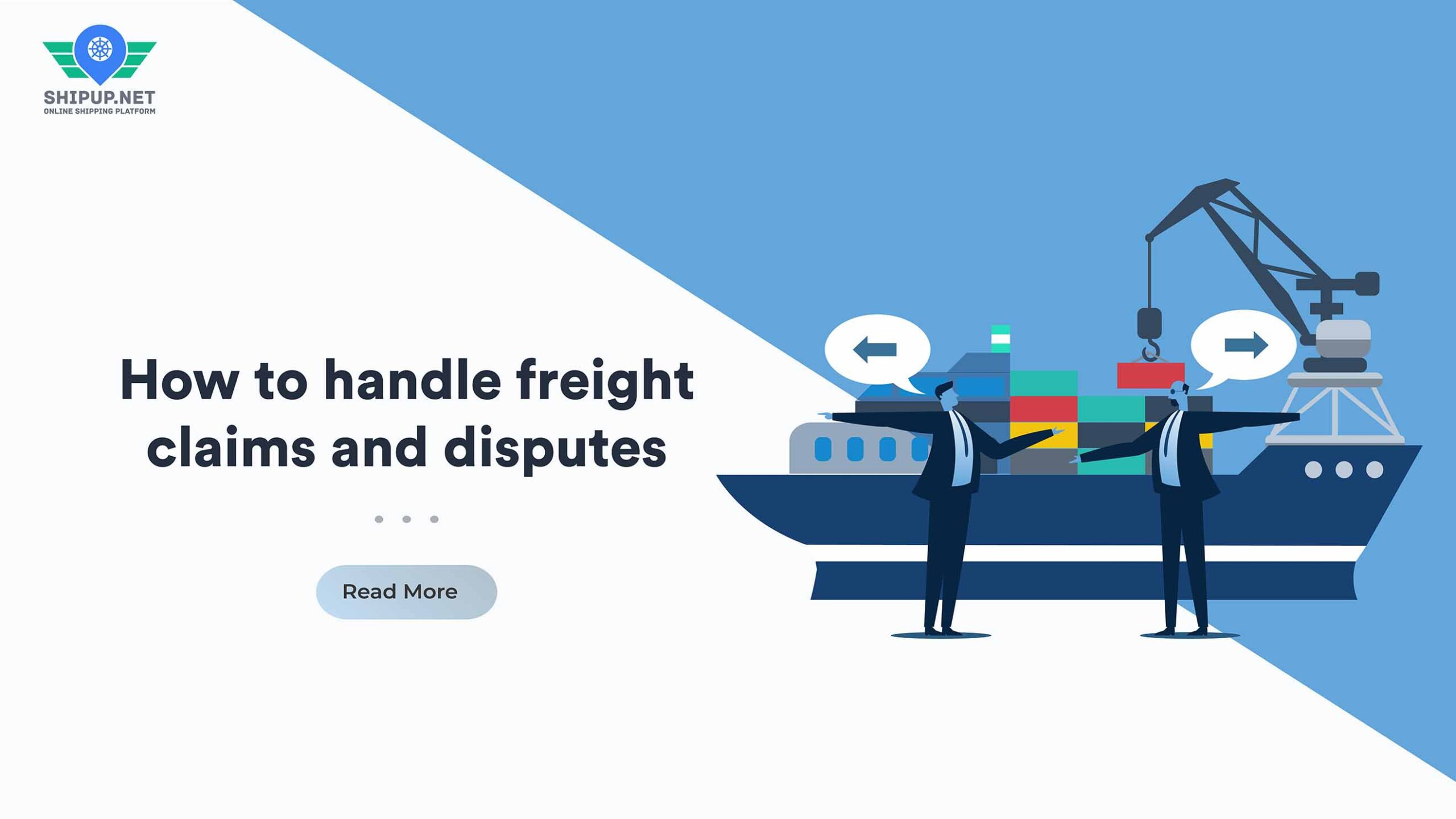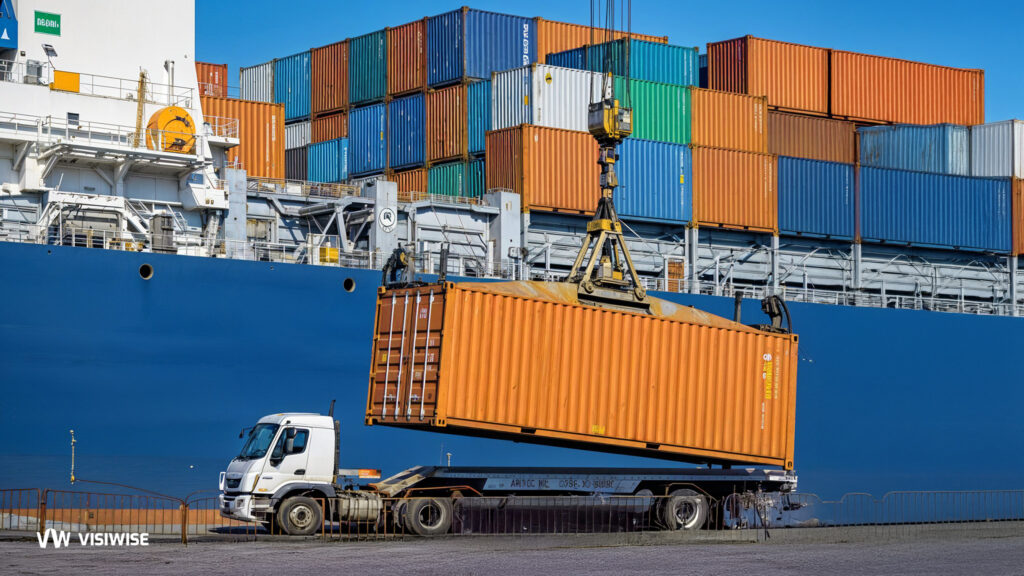Understanding Freight Claims for Ocean Containers
As a business owner or a customer, damaged goods during shipping can be frustrating and costly. When it comes to ocean container shipments, a freight claim is a way to request compensation for loss, damage, or delay of the cargo. Essentially, it’s a legal demand for reimbursement or repair costs from the responsible party.
The process of filing a freight claim can be complex and time-consuming, but it’s essential to get the compensation you deserve. The first step is to gather all the necessary documentation, such as the bill of lading, inspection reports, and delivery receipts. It’s crucial to submit the claim within the specified time frame and follow the carrier’s specific instructions. The carrier will then investigate the claim and make a settlement offer based on their findings.
Fighting a freight claim can be challenging, but it’s not impossible. One way to avoid freight claims is to use quality packaging and proper labeling to ensure that your cargo arrives at the destination in good condition. Also, it’s essential to have a clear understanding of the carrier’s liability limits and the terms and conditions of the shipping contract. In case of a dispute, it’s recommended to seek legal advice and negotiate with the carrier to find a fair and reasonable settlement.
How Freight Claims Work for Ocean Containers
Now that we understand the concept of a freight claim let’s take a closer look at how it works for ocean container shipments. When you ship goods via ocean container, you enter into a contract with a carrier, which outlines their responsibilities for transporting your cargo safely and on time.
If your cargo is lost, damaged, or delayed during transit, you may file a freight claim with the carrier to seek compensation for your losses. To file a claim, you must provide evidence that the shipment was delivered to the carrier in good condition and that it arrived at the destination with damages or was short in quantity. You must also prove the amount of damages incurred.
Once you file the claim, the carrier will investigate the matter and determine whether they are liable for the damages. If they accept liability, they will offer a settlement based on the extent of the damages and their liability limits. If they deny liability, you may need to take legal action to seek compensation.
It’s important to note that carriers have liability limits, which vary depending on the type of cargo and the terms of the shipping contract. Therefore, it’s essential to have a clear understanding of the liability limits and terms and conditions of the contract before shipping your cargo. You can also purchase additional insurance to cover any losses that exceed the carrier’s liability limits.
How Shippers or Consignees Can Handle Freight Claims and Disputes
As a shipper or consignee, experiencing a loss can be a frustrating and time-consuming ordeal. However, there are several steps you can take to increase your chances of getting paid and getting paid faster. The first and most crucial step is to document the damage. Immediately note any shortage or damage on the bill of lading, including as much detail as possible, such as taking photographs if you have a smartphone available. This will help to prove the loss to the carrier and can potentially speed up the claims process.
Another critical tip is to keep the freight, even when damaged. The carrier has the right to mitigate the loss, and it is tough to do so if you have discarded the damaged goods. Additionally, the Carmack Amendment, a law applied to motor carriers by Congress in 1935, requires that all parties to a claim mitigate in good faith. That includes the shipper, carrier, and consignee. It is also essential to pay the freight charges promptly, as regulations state that the claim must have a paid invoice attached.
It is crucial to understand your Bill of Lading as it is the governing contract between the parties in lieu of any other form of contract. When shipments cross state lines, the Carmack Amendment comes into play, and the Bill of Lading determines what rules will be applied. Moreover, it is critical to file any claim as soon as possible, as the claimant has a limited time to dispute the disposition. Lastly, it is vital to know the maximum freight claims liability amount, as each country has its own maximum liability amount per freight claim. Remember, you cannot profit from freight claims, and the value is determined in part by ownership of the goods when the loss occurs. By following these tips, you can help ensure that your claim is processed promptly and efficiently.
How Carrier Can Handle Freight Claims and Disputes
Freight claims can be a headache for carriers who transport goods, but there are ways to fight them. Under the Carmack Amendment, there are five liability exceptions that carriers can use to defend themselves. One of these exceptions is an "Act of God," which refers to significant, unexpected events that directly cause the loss in question. For instance, if a tornado blows over the trailer containing television sets, all sets may be damaged. However, carriers need to take reasonably available means to avoid or minimize the loss. If there have been warnings in the area for days and an order to evacuate, damage incurred during that hurricane would not meet the Act of God criteria.
Another exception is an "Act of War or Public Enemy," which is pretty straightforward. However, this term does not refer to the FBI Public Enemy list, or a Mafia hit. Instead, it refers to governmental enemies. If a terrorism situation, particularly a domestic terrorism situation, falls into this category, it is still a big question, and future case law will address it.
If the damage incurred is the fault of the shipper rather than the carrier, carriers can use the "Act or Default of Shipper" exception. Improper packaging, incorrect loading, or errors in the product provided or the way the contents of the load are described on the bill of lading are some examples of shipper acts that could qualify. Furthermore, the "Public Authority" exception can be used if the cargo damage is the result of a public authority, such as quarantine, road closures, product recall, or trade embargoes. Finally, "Inherent Vice" refers to goods that are naturally subject to breakdown or decay with the elapse of time, such as cheese, fruits, vegetables, dairy, or tobacco. The carrier needs to show that the inherently unstable aspect of the cargo caused the damage, not negligent handling on their own part.
In conclusion, carriers have various options to fight freight claims. The burden of proof falls on the carrier, unfortunately. However, if carriers can show that the damage was the result of an Act of God, Act of War or Public Enemy, Act or Default of Shipper, Public Authority, or Inherent Vice, they can use one of the five liability exceptions to defend themselves. It is crucial to understand the guideline from Standard Brands, Inc. vs. Nippon Yusen, which states that carriers may be held liable if they failed to act as a reasonable prudent person would under the circumstances and failed to take reasonable available means to avoid or minimize the loss resulting therefrom. Therefore, carriers need to take proper precautions and mitigate the damage whenever possible to avoid freight claims.



